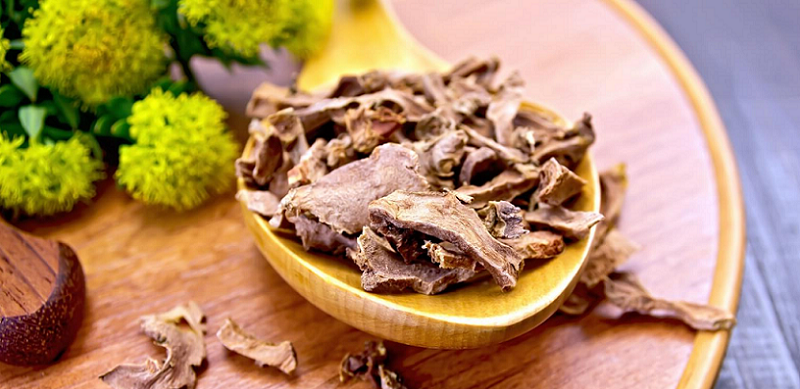
In our fast-paced world, where mental sharpness and alertness are more crucial than ever, people are increasingly turning to natural solutions to enhance cognitive performance. Among these, Rhodiola Rosea stands out as a notable and promising option. Originating from the cold, mountainous regions of Europe and Asia, Rhodiola Rosea has been used for centuries in traditional medicine to increase endurance, reduce fatigue, and, most importantly, improve mental capabilities.
Contents
The Science Behind Mental Alertness
Mental alertness is an essential aspect of our daily lives, influencing our ability to process information, make decisions, and respond to the world around us. But what exactly is mental alertness, and how does our brain manage this critical function?
Defining Mental Alertness
Mental alertness, often synonymous with cognitive sharpness or focus, refers to the state of being awake, aware, and able to think and react quickly. It encompasses a range of cognitive functions, including attention, concentration, and the ability to process information swiftly and accurately. This state is vital for performing tasks effectively, especially in situations that require quick decision-making or learning.
Biological Mechanisms of Alertness and Focus
The brain’s ability to maintain alertness and focus is a complex process involving various neural pathways and neurotransmitters. Key players in this process include:
Neurotransmitters
Chemicals like dopamine, norepinephrine, and acetylcholine play pivotal roles in regulating alertness. Dopamine and norepinephrine, for instance, are linked with attention and arousal, helping us stay focused and responsive. Acetylcholine is associated with attention and learning, enhancing our ability to concentrate and process information.
Brain Regions
Specific areas of the brain, such as the prefrontal cortex and reticular activating system (RAS), are crucial for maintaining alertness. The prefrontal cortex is involved in high-level cognitive functions and decision-making, while the RAS acts as a filter for incoming stimuli, regulating wakefulness and sleep-wake transitions.
Circadian Rhythms
Our internal biological clock, or circadian rhythm, also affects our mental alertness. It regulates the sleep-wake cycle, influencing our alertness levels throughout the day. Disruptions in this cycle can lead to decreased alertness and cognitive functioning [1].
Rhodiola Rosea: An Overview
In the realm of natural nootropics, Rhodiola Rosea occupies a special place, celebrated for its ability to enhance mental alertness and overall cognitive performance. To appreciate its value, it’s important to first understand what Rhodiola Rosea is, its origin, and the key components that make it effective.
Origin and Historical Use of Rhodiola Rosea
Rhodiola Rosea, often referred to as Golden Root or Arctic Root, is a perennial herb native to the cold, mountainous regions of Europe and Asia. For centuries, it has been a staple in traditional medicine systems, especially in Russia and Scandinavian countries. Historically, it was used to increase physical endurance, work productivity, longevity, resistance to high altitude sickness, and to treat fatigue, depression, anemia, and impotence.
The use of Rhodiola Rosea in traditional medicine has always been rooted in its perceived ability to enhance the body and mind’s resistance to stressors. In modern times, this historical use has evolved into a focus on its nootropic properties, particularly its impact on mental alertness and cognitive function.
Key Components of Rhodiola Rosea Affecting Mental Alertness
The effectiveness of Rhodiola Rosea as a nootropic is largely attributed to its bioactive compounds. The two most significant compounds are rosavin and salidroside. These components are believed to play a key role in the herb’s adaptogenic properties – helping the body adapt to and resist physical, chemical, and environmental stress [2].
Rosavin
This compound is unique to Rhodiola Rosea and is often used as a marker to determine the quality of the extract. Rosavin has been linked to balancing the stress hormone cortisol, which plays a significant role in how the body responds to stress and anxiety.
Salidroside
Another potent compound, salidroside, is known for its antioxidant properties. It helps protect cells from damage and is also believed to have anti-aging and antidepressant effects.
The synergy of these compounds in Rhodiola Rosea is thought to contribute to improved cognitive functions, particularly in enhancing mental alertness, reducing mental fatigue, and improving concentration and memory. This makes Rhodiola Rosea not just a historical herbal remedy, but a relevant and promising natural supplement in today’s fast-paced and stress-filled world.

The Impact of Rhodiola Rosea on Mental Alertness
The growing interest in Rhodiola Rosea in the field of cognitive enhancement is primarily due to its potential impact on mental alertness.
Rhodiola Rosea Enhances Cognitive Function and Focus
Rhodiola Rosea is often celebrated for its adaptogenic properties, which not only help the body resist physical and emotional stress but also improve various aspects of mental function. One of the key areas where Rhodiola Rosea shows promise is in enhancing cognitive function and focus. This encompasses improved memory, faster processing abilities, and better concentration.
Studies have shown that the adaptogenic qualities of Rhodiola Rosea can help reduce mental fatigue under stressful conditions, thereby allowing for better maintenance of cognitive performance. This is particularly beneficial in scenarios that demand high cognitive output, such as during examinations, intense work periods, or in managing the complexities of daily life [3].
Studies and Research Supporting Rhodiola Rosea Efficacy
Several scientific studies have examined the effects of Rhodiola Rosea on mental alertness and cognitive function. For instance, a study published in the journal ‘Phytotherapy Research’ found that participants who consumed Rhodiola Rosea exhibited significant improvements in various cognitive functions, with notable reductions in mental fatigue. Another study highlighted its potential in improving concentration and reducing the cognitive impairments associated with stress and fatigue.
These studies underline the potential of Rhodiola Rosea as a natural cognitive enhancer, particularly in situations that demand high mental stamina and alertness. However, it’s important to note that research is ongoing, and while results are promising, they also advocate for a more nuanced understanding of how Rhodiola Rosea interacts with different cognitive functions.
Comparison of Rhodiola Rosea with Synthetic Nootropics
When compared to synthetic nootropics, Rhodiola Rosea offers a more natural and gentler approach to enhancing mental alertness. Unlike many synthetic options that might have more immediate and potent effects, Rhodiola Rosea works gradually and is less likely to cause side effects or dependency issues. This makes it an attractive option for individuals looking for a sustainable and natural way to support their cognitive health.
Moreover, Rhodiola Rosea’s adaptogenic nature means it works in harmony with the body’s natural rhythms, potentially offering more holistic benefits beyond just cognitive enhancement, such as stress reduction and overall well-being. This holistic approach is a significant advantage for those who prefer a more natural and balanced method to improve their mental alertness and cognitive functions.
Mechanism of Action of Rhodiola Rosea
Understanding how Rhodiola Rosea works to enhance mental alertness involves delving into its mechanism of action at the cellular and neurological levels. This understanding not only highlights the sophistication of this natural supplement but also provides insight into how it might be used effectively.
How Rhodiola Rosea Affects the Brain
The primary action of Rhodiola Rosea in the brain is its influence on neurotransmitter levels, which are chemicals that transmit signals across nerve cells. Rhodiola Rosea impacts key neurotransmitters involved in cognitive function, such as serotonin, dopamine, and norepinephrine. By modulating these neurotransmitters, Rhodiola Rosea can improve mood, enhance concentration, and reduce mental fatigue.
One significant effect is its ability to inhibit the breakdown of these neurotransmitters, making them more available in the brain. This increased availability helps to maintain a state of mental alertness and cognitive clarity. Additionally, Rhodiola Rosea’s adaptogenic properties help the body and mind manage stress more effectively, preserving cognitive function under pressure [4].
Interaction of Rhodiola Rosea with Neurotransmitters
The interaction of Rhodiola Rosea with neurotransmitters is complex and multifaceted. For instance, by influencing the levels of serotonin and dopamine, it can promote a sense of well-being and enhance focus, respectively. These effects are particularly beneficial in managing conditions like stress-induced fatigue and anxiety, which can significantly impair cognitive function.
Moreover, Rhodiola Rosea also seems to affect the beta-endorphin levels in the body. Beta-endorphins are peptides that help in pain management and mood improvement. By increasing the availability of beta-endorphins, Rhodiola Rosea not only helps in reducing the perception of stress but also enhances overall mental clarity and alertness.
The comprehensive action of Rhodiola Rosea on the brain’s neurotransmitter systems and its adaptogenic effect on stress response collectively contribute to its efficacy as a cognitive enhancer. By regulating these key neurological pathways, Rhodiola Rosea supports sustained mental alertness, making it a valuable supplement for those seeking to boost their cognitive function naturally.

Optimal Rhodiola Rosea Usage for Maximum Mental Alertness Benefits
To fully harness the cognitive-enhancing properties of Rhodiola Rosea, it is crucial to understand the optimal ways to use it.
Recommended Dosages of Rhodiola Rosea for Mental Alertness
The effective dosage of Rhodiola Rosea can vary based on individual needs and the specific extract being used. Generally, studies suggest a dosage range from 100 to 600 mg per day. For cognitive enhancement and improved mental alertness, a common recommendation is to start with a lower dose, such as 100 to 200 mg daily, and adjust as needed based on your body’s response.
It’s important to note that Rhodiola Rosea’s effects are not typically immediate and may require consistent intake over a period of weeks to become noticeable. Consulting with a healthcare professional before starting any new supplement regimen is always advised, especially for those with pre-existing health conditions or those taking other medications.
Best Practices for Rhodiola Rosea Consumption
Rhodiola Rosea is available in various forms, including capsules, tablets, teas, and liquid extracts. The choice of form often depends on personal preference, but it is essential to ensure that the product is of high quality and from a reputable source. Look for supplements that specify the amount of active ingredients, such as rosavins and salidroside, to ensure potency and effectiveness.
When consuming Rhodiola Rosea, it’s typically recommended to take it in the morning or early afternoon to align with the body’s natural rhythm and avoid potential interference with sleep. Taking it with food may help reduce any stomach upset.
Timing and Duration of Effects of Rhodiola Rosea
The cognitive benefits of Rhodiola Rosea are usually not instantaneous but develop over time. Users often report noticeable improvements in mental clarity, focus, and energy levels within a few weeks of regular intake. For some, the effects may be subtle at first, gradually building up with continued use.
The duration of supplementation can vary. Some people might find a short-term course effective for periods of high stress or cognitive demand, while others might benefit from longer-term use. It’s important to listen to your body and adjust your regimen accordingly. Taking breaks or cycling the supplement can also be a practical approach to prevent tolerance and maintain effectiveness [5].
Synergistic Effects of Rhodiola Rosea with Other Nootropics
While Rhodiola Rosea is effective on its own as a cognitive enhancer, its potential is further amplified when used in combination with other nootropics.
Combinations of Rhodiola Rosea and Other Nootropics for Enhanced Alertness
Pairing Rhodiola Rosea with other nootropics can lead to complementary and sometimes synergistic effects. For instance, combining it with caffeine, commonly found in coffee and tea, can amplify its energizing effects, making this combination a popular choice for those needing a quick boost in focus and energy. However, it’s essential to monitor the response to this combination as it might increase the potential for overstimulation in sensitive individuals.
Another beneficial combination is Rhodiola Rosea with L-Theanine, an amino acid found in green tea. L-Theanine promotes relaxation without sedation and, when combined with Rhodiola Rosea, can support sustained attention and focus while minimizing potential jitteriness or anxiety that can sometimes result from standalone stimulants.
Potential Benefits and Risks of Taking Rhodiola Rosea
The primary benefit of combining Rhodiola Rosea with other nootropics is the potential for targeted cognitive enhancement. For instance, combining it with nootropics that support memory and learning, like Bacopa Monnieri or Ginkgo Biloba, can provide a more comprehensive cognitive enhancement profile.
However, it’s crucial to be aware of the potential risks when combining supplements. Each nootropic has its own set of effects and side effects, and their interactions can sometimes be unpredictable. It’s recommended to start with lower doses when experimenting with combinations and to consult a healthcare professional, especially if you have underlying health conditions or are taking medications.
References
[1] Rhodiola: Benefits, Side Effects, and Uses
[2] Rhodiola rosea for physical and mental fatigue: a systematic review
[3] Rhodiola rosea L. Improves Learning and Memory Function: Preclinical Evidence and Possible Mechanisms
[4] Scientific Opinion on the substantiation of a health claim related to Rhodiola rosea L. extract and reduction of mental fatigue
[5] Rhodiola rosea

